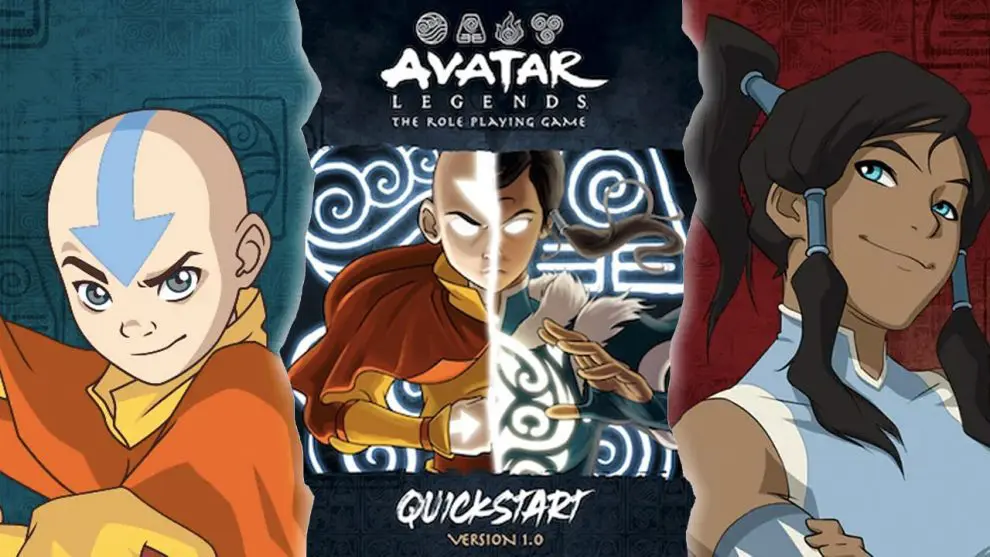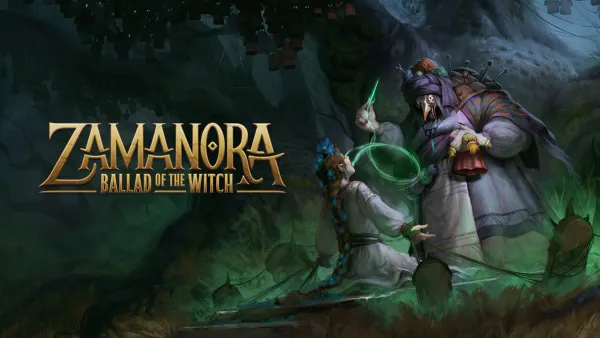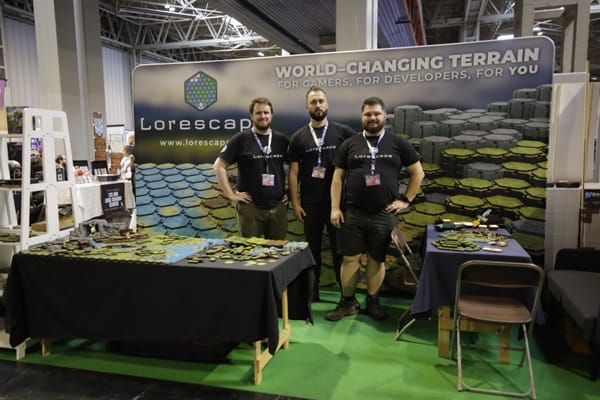Analysis of IP-to-TTRPG Conversions and Kickstarter Performance

The tabletop roleplaying game (TTRPG) industry has seen significant growth in recent years, with licensed intellectual properties (IPs) becoming an increasingly important segment of the market. This analysis examines how established IPs from other media have been converted into TTRPGs, with a particular focus on crowdfunding campaigns on Kickstarter. We'll explore successful examples, funding outcomes, IP acquisition methods, and monetization strategies.
Notable IP-to-TTRPG Conversions and Their Kickstarter Performance
Film & Television IPs
- Avatar Legends: The RPG (Nickelodeon's Avatar: The Last Airbender & Legend of Korra)
- Publisher: Magpie Games
- Kickstarter Launch: August 2021
- Funding Goal: $50,000
- Amount Raised: $9,535,317 from 81,567 backers
- Notable: One of the highest-funded TTRPG Kickstarters of all time
- Blade Runner: The Roleplaying Game
- Publisher: Free League Publishing
- Kickstarter Launch: May 2022
- Funding Goal: $10,000
- Amount Raised: $1,586,332 from 12,486 backers
- Dune: Adventures in the Imperium
- Publisher: Modiphius Entertainment
- Kickstarter: Did not use Kickstarter; direct to retail
- Estimated Sales: Strong performer in Modiphius catalog
- The One Ring 2E (Lord of the Rings)
- Publisher: Free League Publishing
- Kickstarter Launch: February 2021
- Funding Goal: $12,000
- Amount Raised: $2,146,642 from 18,550 backers
Video Game IPs
- The Witcher TRPG
- Publisher: R. Talsorian Games
- Distribution: Traditional publishing, no Kickstarter
- Performance: Reported strong sales across multiple printings
- Fallout: The Roleplaying Game
- Publisher: Modiphius Entertainment
- Distribution: Traditional publishing, no Kickstarter
- Performance: Strong retail presence and sales
- Homeworld: Revelations
- Publisher: Modiphius Entertainment
- Distribution: Traditional publishing
- Performance: Moderate success, niche audience
Comic Book IPs
- Marvel Multiverse Role-Playing Game
- Publisher: Marvel directly
- Distribution: Traditional publishing, no Kickstarter
- Performance: Strong initial sales due to brand recognition
- DC Heroes & Villains Deck-Building Game
- Publisher: Cryptozoic Entertainment
- Kickstarter Launch: 2022
- Amount Raised: $195,027
- Note: While primarily a deck-building game, it includes RPG elements
Methods of Acquiring IPs for TTRPGs
1. Direct Licensing Agreements
Process:
- Approaching IP holders or their licensing representatives
- Negotiating terms including royalty percentages, minimum guarantees, approval processes
- Defining scope (territories, languages, supplementary products)
Examples:
- Modiphius Entertainment with Dune, Fallout, and Conan
- Free League Publishing with Alien and Blade Runner
- Magpie Games with Avatar
Typical Terms:
- Royalty rates: 8-15% of wholesale or 5-10% of retail
- Minimum guarantees: $10,000-$500,000 depending on IP strength
- Term length: 3-5 years with renewal options
- Approval processes for all published materials
2. Partnership with Original IP Creators
Process:
- Working directly with creators rather than large license holders
- Often involves more collaborative development
- Usually lower financial barriers but more creative oversight
Examples:
- Evil Hat Productions with The Dresden Files RPG (Jim Butcher)
- Hunters Entertainment with Altered Carbon RPG (partnership with Netflix/Skydance)
3. Work-for-Hire Development
Process:
- IP holder contracts a game studio to develop a TTRPG
- IP owner retains all rights
- Developer paid flat fee or royalty arrangement
Examples:
- Green Ronin developing the Dragon Age RPG for BioWare
- Renegade Game Studios developing Power Rangers RPG for Hasbro
4. Strategic Acquisitions of Existing Licenses
Process:
- Purchasing an existing TTRPG publisher that already holds valuable licenses
- Acquiring specific game lines and their associated IP rights
Examples:
- Asmodee acquiring Fantasy Flight Games (Star Wars, Legend of the Five Rings)
- Embracer Group acquiring multiple TTRPG studios with existing licenses
Monetization Strategies for Licensed TTRPGs
1. Core Product Sales
Physical Books:
- Core rulebooks ($40-60)
- Setting/sourcebooks ($30-50)
- Adventure modules ($20-40)
- Deluxe/collector's editions ($80-150)
Digital Products:
- PDF versions (typically 50-70% of physical price)
- Virtual Tabletop (VTT) content (Roll20, Foundry VTT)
- Apps and digital companions
2. Subscription and Membership Models
Examples:
- Demiplane's digital toolset for Pathfinder, World of Darkness
- D&D Beyond's subscription model before WotC acquisition
Revenue Structure:
- Monthly ($5-10) or annual ($50-100) subscriptions
- Tiered access to digital content and tools
- Early access to new materials
3. Crowdfunding Campaign Strategies
Common Approaches:
- Early bird discounts (10-20% off)
- Exclusive Kickstarter content
- Stretch goals to drive additional pledges
- Add-on products to increase average pledge amount
- Retailer pledge levels ($500-2000) for bulk orders
Post-Campaign Monetization:
- BackerKit or Pledge Manager for late pledges (typically adds 10-15% to campaign total)
- Pre-order phase between campaign end and retail release
4. Supplementary Products and Cross-Media Opportunities
Game Accessories:
- Custom dice sets ($15-30)
- Cards, tokens, and play aids ($20-40)
- Maps and battlemats ($25-60)
- GM screens ($20-40)
Merchandise:
- Apparel and wearables
- Art prints and posters
- Pins, stickers, and small collectibles
Digital Expansions:
- Video game tie-ins
- Mobile apps
- VTT modules and assets
5. Organized Play and Events
Programs:
- Convention events and tournaments
- In-store play programs
- Online organized play
Revenue Generation:
- Event ticket sales
- Exclusive event products
- Promotional materials
Key Success Factors and Challenges
Critical Success Factors
- IP Alignment with TTRPG Format
- IPs with rich worldbuilding tend to perform better
- Established universes with exploration potential
- IPs with existing fan communities interested in interactive experiences
- System-IP Compatibility
- Custom systems designed to match IP themes and mechanics
- Adaptation of established systems to fit IP expectations
- Timing and Market Positioning
- Alignment with new content releases in the original IP
- Positioning relative to competitor products
Common Challenges
- Approval Processes
- Lengthy review cycles with IP holders
- Creative constraints
- Multiple stakeholder approvals
- Target Audience Alignment
- Balancing accessibility for IP fans vs. TTRPG veterans
- Meeting expectations of multiple audience segments
- Production Costs vs. License Costs
- Managing production quality expectations while maintaining margins
- Balancing minimum guarantees against realistic sales projections
Conclusion
The conversion of established IPs into TTRPGs represents a significant and growing segment of the tabletop gaming industry. While Kickstarter campaigns for licensed IPs have shown remarkable potential (with standouts like Avatar Legends raising over $9.5 million), success depends heavily on the strategy for IP acquisition, game development approach, and monetization plans.
The most successful IP conversions typically feature:
- Strong alignment between the IP's themes and TTRPG mechanics
- Robust community engagement before and during crowdfunding
- Diversified monetization strategies beyond core rulebooks
- Strategic timing with broader IP activities and releases
As the TTRPG market continues to expand, we can expect to see more diverse IP conversions, innovative funding models, and creative approaches to bringing beloved franchises to the tabletop gaming space.





